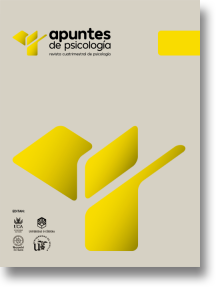Structural design dimensions in programme evaluation
DOI:
https://doi.org/10.55414/nsd4er61Keywords:
evaluation, validity, design, programmeAbstract
The unstable circumstances of programme evaluation contexts make standard programme evaluation designs practically impossible to provide. The main objective of this papers to describe the structural dimensions of program evaluation designs in order to implement them in a flexible way in different evaluation contexts. These dimensions will try to enhance the scientific validity of the evaluative data obtained, without offering the idea of a series of design structures valid for certain standard situations. The structural dimensions are: clients of the programme, type of data, and recording moments. The combination of these dimensions will justify first, the use of different evaluative designs, and second the implications for studying and neutralizing threats to validity. Design elements will be structured around contents refering to programme conditions, pretest and posttest measures, comparison groups and type of implementation.
Downloads
References
.
Downloads
Published
Issue
Section
License
Copyright (c) 2022 APUNTES DE PSICOLOGÍA

This work is licensed under a Creative Commons Attribution-NonCommercial-NoDerivatives 4.0 International License.


















